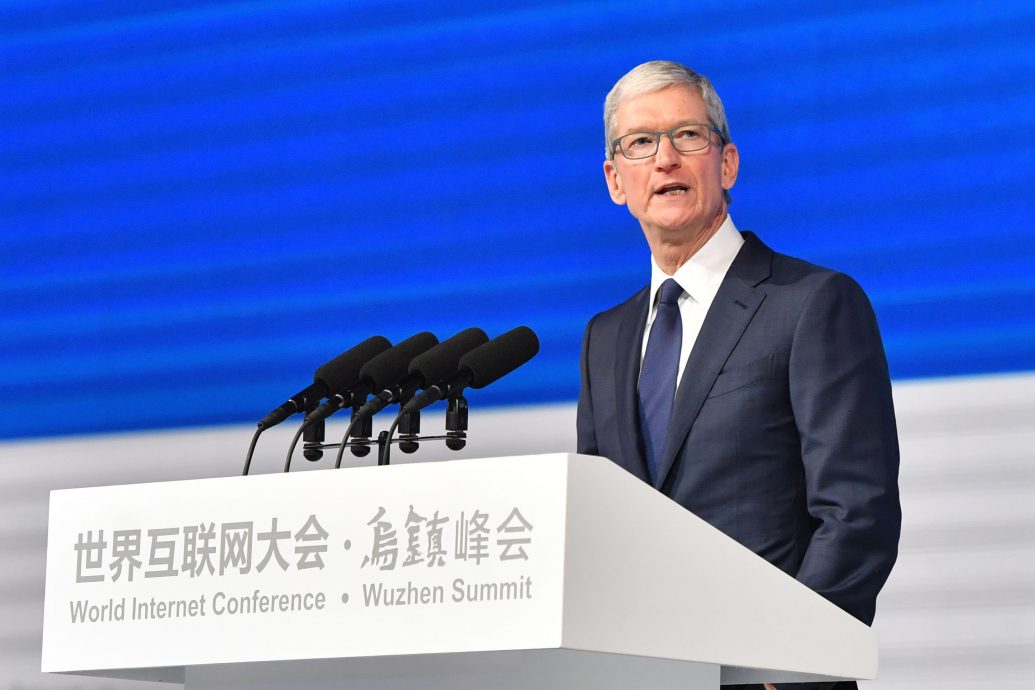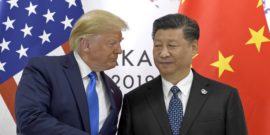Franklin Foer's perceptive and dystopian book misunderstands the real threats posed by Big Tech.
Half a Worm
When the CEO of Apple, Inc., gave the keynote address last week at a conference in Wuzhen promoting the Chinese government’s style of Internet management, he added a line to what is now a long and dishonorable history of his industry’s engagement with China.
In 2002, Cisco Systems made a pitch (later leaked, to the company’s embarrassment) to Chinese officials in which it listed as a selling point the fact that its routers could be programmed with filtering and logging software to combat “the evil religion Falun Gong.” Though the company disclaimed responsibility, the Great Firewall, that vast engine of censorship and surveillance, arguably bears the Cisco trademark.
Between 2003 and 2005, Yahoo! handed over customer email data enabling the conviction and imprisonment of four dissidents for activities that would not be considered criminal in any free country.
Mark Zuckerberg, whose company remains banned in China while a local Facebook lookalike flourishes, has told President Xi Jinping that he keeps a copy of the President’s collection of speeches, The Governance of China, on his desk—fawning, in other words, with less dignity than one would expect from a 19th century rickshaw puller.
Under Tim Cook, Apple has removed from its online store in China any software that the government tells it to remove. At the end of 2016, the axe thus fell on an app that makes it possible to read the New York Times (in Chinese or English). The Times website had been blocked by the Great Firewall ever since its 2012 revelation about the billions of dollars (that’s billions with a “b”) amassed through uncertain means by the families of senior members of the Chinese Politburo. Notably, however, the removal of the Times App came only days after the paper ran a story exposing the enormous subsidies that Apple’s manufacturing operations were receiving in China.
In late July of this year, at Beijing’s request, Apple pulled from its store hundreds of VPN’s, which are software programs enabling “virtual private networks” with which people in China can penetrate the Great Firewall and access blocked sites. Because the App Store is the only source of approved software for Apple devices, and because Apple will allow a person with a Chinese billing address to place orders only through the Chinese App Store, this move seriously limits the options of people in China who use Apple devices. And in every such incident, the company has declined to state exactly what regulation or law the software fell afoul of, so the injured party has no basis on which to appeal the decision with the government.
It is doubtful, in fact, that legal formalities are observed—“We don’t need no stinkin’ injunctions.” I suspect that to get software pulled from the App Store, nothing more is needed than a phone call from a mid-level official of the state.
Not that Cook has been spineless through all this. Here is a statement from him:
At Apple, we are in business to empower and enrich our customers’ lives. We strive to do business in a way that is just and fair. That’s why, on behalf of Apple, I’m standing up to oppose this new wave of legislation—wherever it emerges.
Oh, wait. He said that in opposition to a state-level initiative in the United States upholding religious freedom (in the bake-me-a-cake imbroglio).
There are three possible interpretations.
One is that, even if Western businessmen uphold a moral code in which freedom (especially of trade and information) ranks high, when they operate abroad they must take the local politico-legal environment as a given. They can comfort or defend themselves with the thought that their engagement will have beneficial effects even if it is marked by moral compromises.
Or, Western businessmen are myopic and amoral. Vladimir Lenin joked that capitalists would sell him the rope with which he would hang them. Since the human rights issues for which tech multinationals have drawn criticism involve selling the Chinese Communist Party the rope with which it hangs someone else—usually a Chinese citizen—the companies’ cooperation should not surprise us.
Or, the leaders of the tech industry are steeped in Progressivism, in whose value system any freedom other than sexual freedom ranks very low. These leaders also—to a greater extent than earlier generations of business titans—see themselves as an elite both qualified and entitled to determine the conditions under which millions will live their lives. They are therefore naturally sympathetic to the CCP, which likewise devalues freedom and conceives of itself as a paternalistic meritocracy.
Many years ago, a wise man told me that when an organization pursues a consistent policy, there are always three reasons for it. The first is the reason that is given as a matter of public relations. The second is the reason invoked in internal discussions. The third is the real reason.
There you have it.



